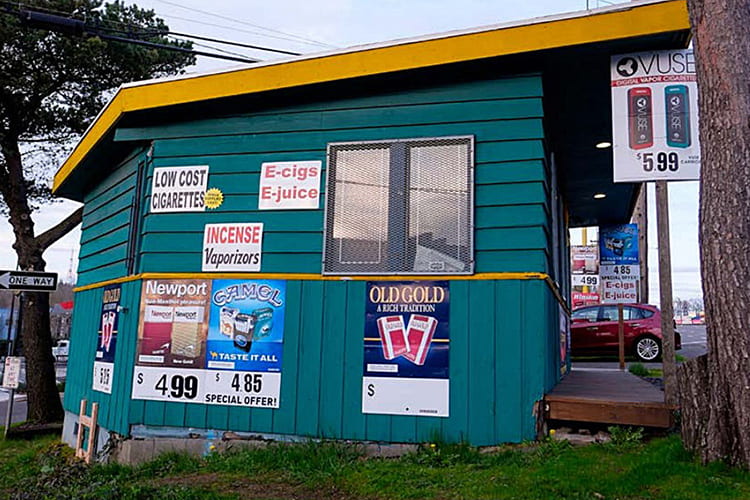Content from Public Health Law Center publication April 17, 2019
Policies that limit where menthol cigarettes are sold and that restrict the number of tobacco retailers in a community can significantly reduce tobacco-related health disparities among area residents. This is just one of the findings unearthed by the Tobacco Town Minnesota project, a recent collaboration between researchers at the Brookings Institution, the Public Health Law Center, and Washington University, funded by a research grant from ClearWay Minnesota. The research team used computer simulations to examine the impact of cigarette sales restrictions in six types of communities in Minnesota. Four policies were tested alone and in combination with each other:
- Restricting the sale of menthol cigarettes;
- Limiting the types of stores in which cigarettes can be sold;
- Limiting how close tobacco retailers can be to each other; and
- Limiting how close tobacco retailers can be to landmarks, such as schools.
For more information about this project, visit our Tobacco Town Minnesota web page, where we host a variety of resources related to our research, along with a link to our interactive dashboard, which includes our computer model details and results.
